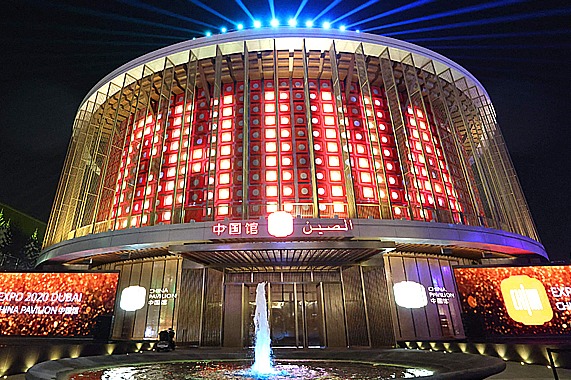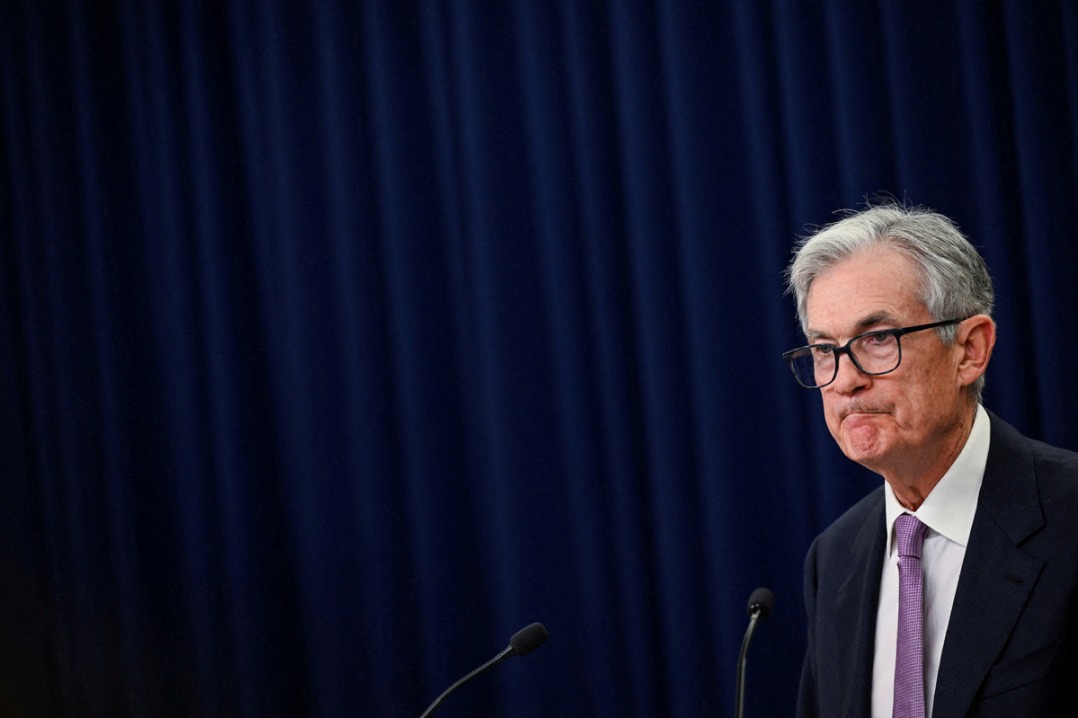Sweet scent brings two vibrant cities to mind

As a refreshing early autumn breeze sweeps across Guangta Road in the Yuexiu District of Guangzhou, I walk through a long passage to the yard of Huaisheng Mosque.
As I walk, that breeze brings in a fragrance that mingles lemon, jasmine and honey, refreshing this earlyriser's mind.
Looking toward the ground, it becomes apparent that the fragrance emanates from frangipani petals shed from a lofty tree and now scattered across the slabstone.
It all takes me back several years, to when I first visited Dubai in the United Arab Emirates, when that fragrance last delighted my senses.
Sweet smells and urban greening may not immediately suggest similarities between Guangzhou and Dubai, but they do have a lot in common. The two cities are located at similar latitudes and are both coastal metropolises, and they are both cultural melting pots. Perhaps it is no surprise then that 12 years ago they decided to form a relationship under the moniker sister cities.
As a commercial hub for thousands of years and an important international exchange city in China, Guangzhou has attracted many foreigners to study, work and live there.
In the Tang Dynasty (618-907), the Guangta Road, where the mosque is located, and its environs served as a community for foreign merchants, mainly Arabs and Persians. This area, known as Fanfang, was a residential unit designated by the government for the foreign residents.
Now the area still plays host to effervescent cultural exchanges, and in April, more than 30,000 foreigners were living in Guangzhou.
Not far from Guangta Road I walked into an Arab cuisine restaurant called Saba and ordered a cup of milk tea. The man who served me was a Yemeni, Ali Ismail Mahyiddin, who said he had lived in Guangzhou for 24 years with his family, and who now considers the city as his first home, his fluent Chinese underlining that.
It was trade and the famed Canton Fair that first drew him to Guangzhou, he said, and the city's openness, cosmopolitan nature and respect for foreigners made him stay.
Two of the restaurant's diners were Omani businessmen who said they had just arrived in the city for the Canton Fair.
Guangzhou had obviously made a great impression on at least one of them, Mohamed R. Sabar, general manager of a medical supplies company, who said: "Guangzhou is a nice city and a flower city. Coming in, all the way from the airport, there were flowers."
For me, the diversity and multiculturalism of the city are evident everywhere, including in its cultural vibrancy, architecture and culinary offerings, mirroring the cosmopolitan UAE, where more than 200 nationalities live side by side.
The UAE's diverse economy provides ample opportunities in many sectors such as technology, finance, real estate, healthcare and new energy. The UAE government promotes policies that make doing business easy, encouraging businesspeople and investors to establish their ventures there.
Notable legislative changes include removing local sponsorship requirements for onshore companies, expanding the Golden Visa program, and introducing various long-term residency visas. The visa programs are a culmination of the UAE's efforts to attract and retain global talent and investment.
The UAE's population is 12.5 million, with 88.5 percent of those who live in the country being foreign nationals, according to a report by the global consultant GMI Research.
Two of my graduate school pals once told me they had decided to work in Dubai, and I had long wondered why they would want to work there when they could find a good job in China.
One of them, Zhang Wenjia, told me recently: "The UAE is incredibly vibrant, and in Dubai, you rub shoulders with people from all corners of the globe who not only respect one another but also chase unique opportunities here. The city pulsates with energy."
In fact, Zhang said, she is now the marketing director of a solar power company.
Why my two friends opted to work in the city is no longer a mystery to me.

































